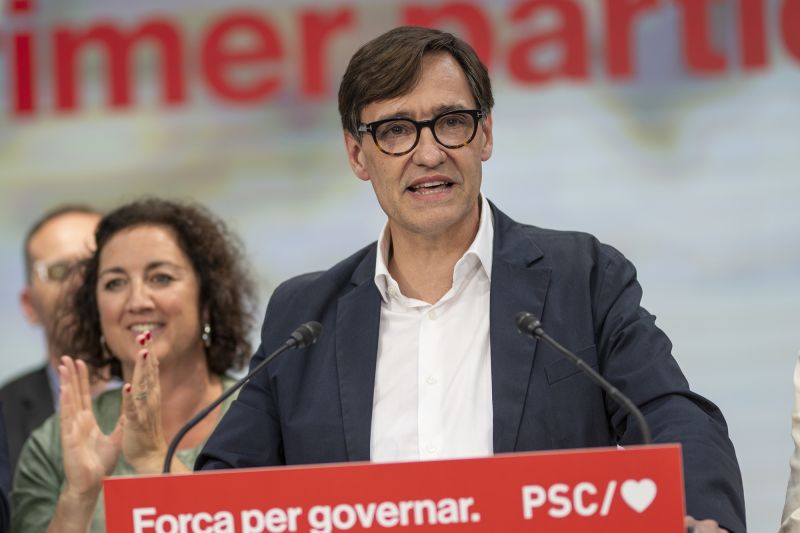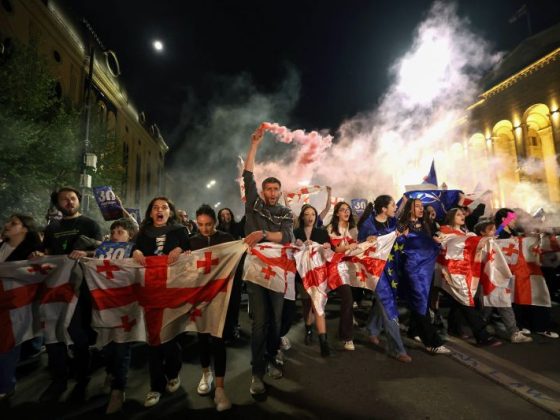Barcelona, Spain — Spain’s Socialists won the biggest share of the vote in Sunday’s Catalan elections, dealing a serious blow to more than a decade of separatist governance and the independence dreams still nursed by some in the wealthy northeastern region.
The Socialists, led locally by Salvador Illa, had 42 seats in the 135-seat chamber with more than 99% of the vote counted, while hardline separatist party Junts was in second place with 35 seats, and the incumbent more moderate separatist party Esquerra Republicana de Catalunya (ERC) had 20 seats.
Spain’s largest opposition party, the conservative People’s Party, also had a good night, seeing the biggest increase since the last vote in 2021 from three seats to 15 on Sunday. Turnout for the vote was notably low at 58%.
The result looks to be an existential threat for separatist governance in Catalonia which led a 2017 illegal independence referendum and declaration of independence that caused Spain’s worst institutional crisis in more than 30 years but whose movement has lost energy and unity more recently.
It also represents a vindication of Spain’s Socialist Prime Minister Pedro Sanchez’s controversial bid to normalize relations with restive Catalonia, including issuing pardons for convictions over the independence drive and, more recently, a controversial amnesty including others still facing prosecution.
Speaking as the voting count concluded, Illa hailed a “new era” for the region. However, with no party holding a clear majority and deep ideological divisions between them, there remains the risk the vote will have to be repeated.
The separatist parties combined of the ERC, Junts, far-left CUP and far-right Alianca Catalana, do not have the required 68 seats to be able to form a coalition government.
Illa’s Socialists will also need to forge an agreement – most likely with the ERC – but separatist parties until now have rejected any suggestion of helping the national ruling party govern in Catalonia.
Illa might instead attempt to form an unorthodox alliance with not only far-left Sumar, its coalition partner in national government, but also the conservative People’s Party and far-right Vox, with whom the socialists have long said they would not negotiate.
On Sunday night, the ERC’s leader Pere Aragones, Catalonia’s outgoing president, told reporters that his party would move into opposition, effectively ruling out backing the Socialists.
Junts’ leader Carles Puigdemont said his party had performed well but turnout among separatist voters remained low and without a strong showing by the ERC, AC and CUP, his options were limited.
He previously said that if he didn’t win and the Socialists allied with the PP to lead the region he might withdraw his support from its minority national government – offered after inconclusive national elections in July, risking fresh instability on a national level.
Political analyst and historian Joan Esculies said whatever came next, the night’s headline was the tamping down of Catalan separatist sentiment: “The pro-independence movement has run out of ideas to convince or mobilize people as they did before.”


